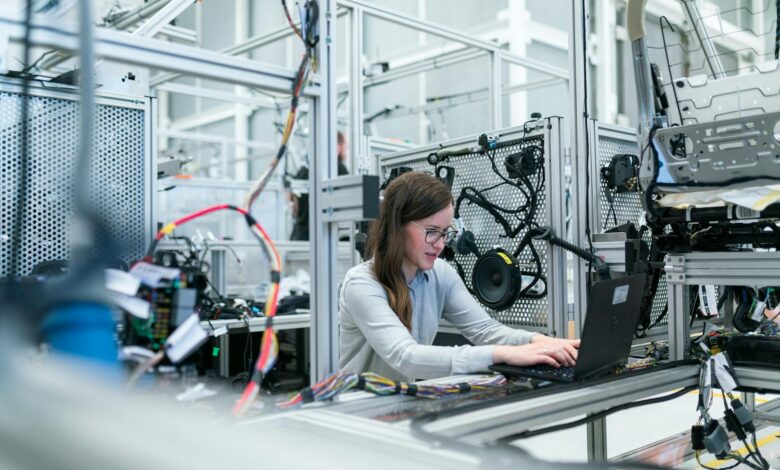The Revolution of Healthcare with Technology Types is Changing the Game

The recent healthcare industry has witnessed a remarkable revolution fueled by cutting-edge technologies that are emerging at a quick pace within a short course of time. These inventions create very evidently both the improvement of the quality of patient care but also they enhance the overall efficiency and the expense reduction as well. Autism speaks, gene synthetic processes, telemedicine, AI robot surgery, 3D printing, and healthcare data analytics, are the leading examples of medical technology innovation, that have already revolutionized the healthcare industry. This article has provided a wealth of insight into the revolutionary nature of those innovations and their impact on healthcare for tomorrow.
The potential of Diagnostic Precision Medicine in Healthcare Transformation
One of the most tractable and emerging technology types in health care is diagnostic precision medicine. In contrast to the previous ways that utilized a universally seen “one solution fits all ” model, precision medicine considers a person’s hereditary background, lifestyle, and environment among other factors so it can adjust effectively to the person. Based on this individualized approach, it has radically changed the outlook for treating several diseases, e.g., cancer, cardiovascular defects, and rare genetic diseases.
Through proper usage of the technology types that involve the use of the advanced genetic profile, molecular screening, and data analytics, health providers will be able to detect the exact molecular drivers of diseases and develop therapies that are more effective and have fewer side effects. For example, precision medicine has really been an innovation in oncology, with targeted cancer therapies that select cancer cells while sparing healthy tissue being one of the latest progress. This leads to better outcomes and less toxicity in terms of patients.
Telemedicine

There is no ‘Medical Staff’ or ‘Nurses’ anymore; they have been replaced by patient-centered care tools that are omnipresent, supplementing every health treatment. The development of telemedicine and remote monitoring technologies has brought the medicine delivery to a new level, which has ensured more and more people will have access to healthcare services all the times and all places. Telemedicine lets a patient communicate with the doctor online via video-conferencing that replaces a need for a traditional face-to-face office visit increasingly popular in mainly rural areas or other underserved regions.Patients can receive timely medical advice, follow-up care, and prescription refills without having to leave their homes.
Remote Monitoring Devices-Wearable Sensors
Remote monitoring devices, such as wearable sensors and health apps, can bring affordable and personalized healthcare services remotely to the homecare environment by tracking patients’ vitals, health metrics, and medicine status constantly. These devices provide instant data to the health care providers, allowing them to detect any emerging health problems early, and hence proactive interventions and management of chronic conditions including diabetes, hypertension, and heart failure becomes easy and dependable. Patients’ health can be better managed by the empowerment in making health decisions and the proactive, individual approach which is made possible by telemedicine and remote monitoring technologies, thus, revolutionizing healthcare delivery.
Artificial Intelligence technology and Machine Learning
AI-based decision support systems can read medical images better, faster, and more accurately than human radiologists. They can detect diseases earlier and have a higher rate of correct diagnosis. ML models can analyze large scale patient data to determine patterns and bring to limelight trends that could be used to aid in decision-making by healthcare professionals. Data-driven decisions are then made by the healthcare professionals and personalized treatment plans are developed tailored to the patient’s specific attributes and history.
In addition, these advances in AI and ML are being used to anticipate patient outcomes, identify high-risk populations, and optimize resource deployment. Predictive algorithms allow finding patients prone to be readmitted again, to predict the development of complications and prioritize interventions required to prevent negative events.
Robotic Surgery

Technological advancement and Innovation in operating rooms lead to autonomy and reliability. Different surgical fields, including urology, gynecology, and cardiac surgery have undergone a robotic transformation. Now, surgeons can carry out minimally invasive surgeries that have only the smallest incision, therefore having less pain, fewer complications, and shorter stays at the hospital for patients. Furthermore, robotic operation might bring benefits for complex cases like organ transplantation where utmost precision and accuracy be the most crucial. One aspect in which robotics truly excels, is that this technology assures the innovations in surgery can go beyond any current boundaries, providing clinicians with fast and precise instruments and ensuring good prognosis for patients.
3D Printing in Healthcare
One-size-fits-all solutions are not difficult to find on the market, but in many cases, they do not meet the specific needs of our clients. Humanize: 3D printing technology is on point in as far as manufacturing of the medical devices, implants and prosthetics are overhauled with patient-centric customized solutions. From individual implants to joint surgeries to custom-fitted prosthetic limbs 3D printing has allowed doctors to provide precision-based care and improved quality which was not in the past achievable. It has also been applied to modeling to aid in surgical planning, guides to assure exact implant placement and customized tools for the difficult procedures.
Virtues such as precision diagnostics, individualized therapy, better availability of patients to doctors, and reduced surgery are some of the novel ways technology is setting the tone in the healthcare profession. The healthcare field is undergoing a major technological revolution which is being driven by technologies like Artificial Intelligence (AI), Machine Learning (ML), 3D printing, robotic surgery, medical data analytics, and precision medicine that has resulted in the enhancement of the output of patients as well as the healthcare providers. The speed of technologies is developing rather than we prefer and the future of medicine sounds like it is full of possibilities rather than achieving. And so, the wellness factor will also improve and people will not only live better but also the communities as a whole will benefit.



